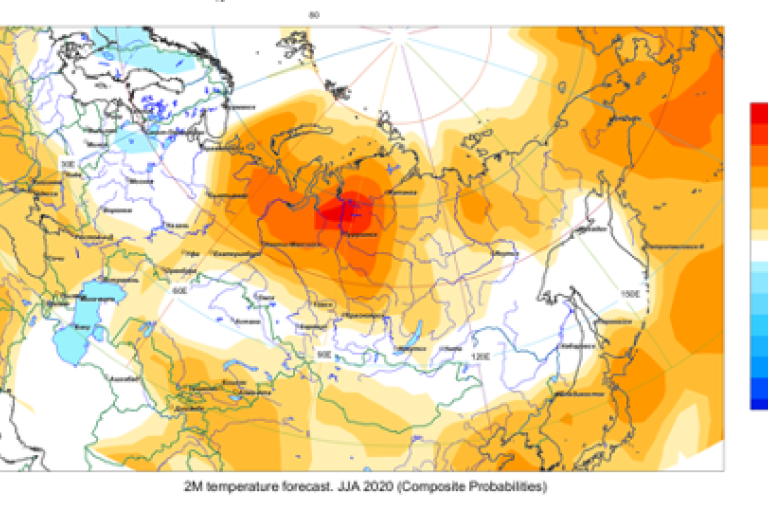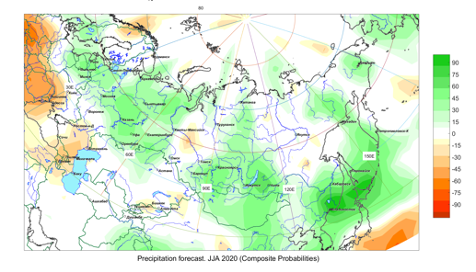Russia hosts North-Eurasian climate outlook forum
The North-Eurasian Climate Outlook Forum has issued a consensus forecast of surface air temperature and precipitation for the upcoming summer season 2020. It also reviewed conditions during the winter, which saw strong atmospheric blocking patterns and big differences and temperature and precipitation, with the Russian Federation witnessing its warmest winter on record.

The North-Eurasian Climate Outlook Forum has issued a consensus forecast of surface air temperature and precipitation for the upcoming summer season 2020. It also reviewed conditions during the winter, which saw strong atmospheric blocking patterns and big differences and temperature and precipitation, with the Russian Federation witnessing its warmest winter on record.
An intensive and deep circumpolar vortex in the stratosphere with the centre over the Franz Josef Land was observed during December, January and February. It ended only in March 2020 with a sudden stratospheric warming event occurred in March 2020. Such conditions led to the formation of polar stratospheric clouds and, judging by preliminary estimates, to a record-breaking depletion of the ozone layer in the Arctic since 2011.

Precipitation amounts near or above the normal ones are expected over a larger territory of the European part and the Ural. In the south of the European part, precipitation is likely to be near and below normal. With a probability of 45-55%, abnormally intensive precipitation has been forecasted for the south of Siberia and the Far East, and for some regions of northeast Russia. In Central Asia and Kazakhstan, the forecast for precipitation is uncertain.
The meeting also looked at the accuracy of the consensus forecast for the December-February winter season. Over the territory of northern Eurasia it was 71% for air temperature and 68% for precipitation. The forecast accuracies for the Asian territory were higher than for the European part.
NEACOF-18 online session was hosted by the Hydrometcentre of Russia, It brought together experts from National Meteorological and Hydrological Services of CIS countries to develop actionable climate information for decision-makers.
- WMO Member:
- Armenia ,
- Belarus ,
- Kazakhstan ,
- Kyrgyzstan ,
- Republic of Moldova ,
- Russian Federation ,
- Uzbekistan

